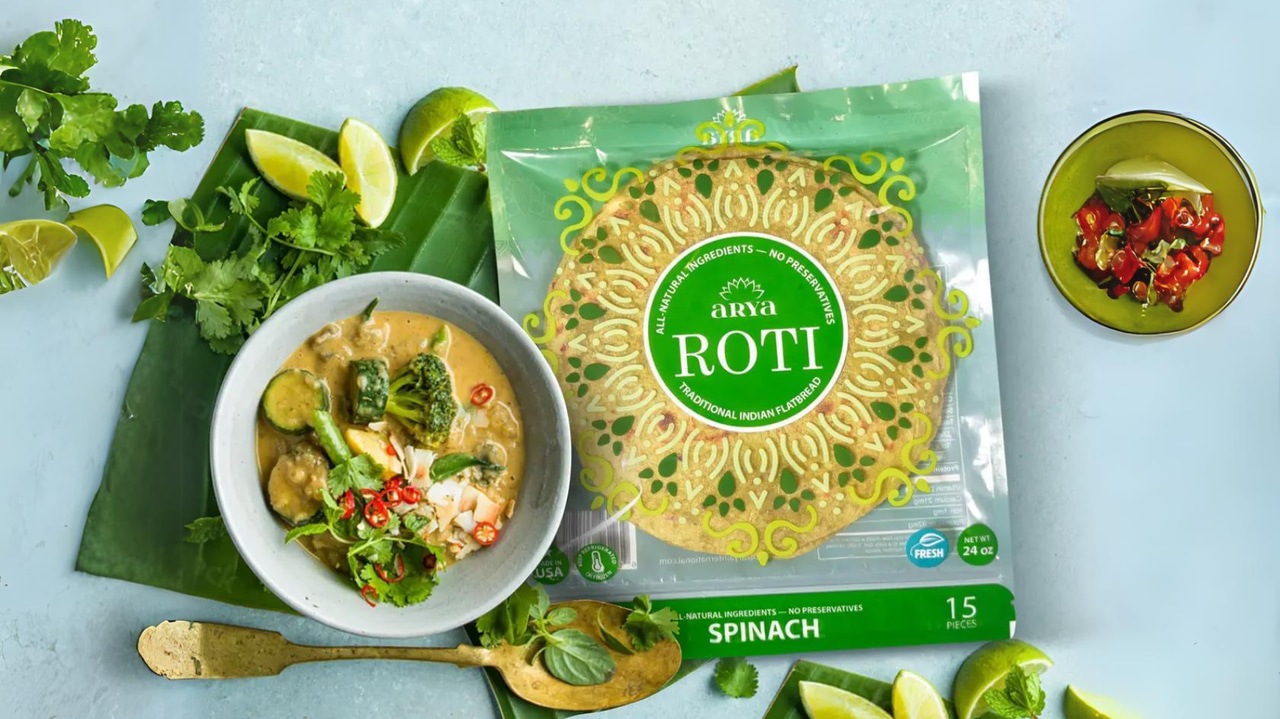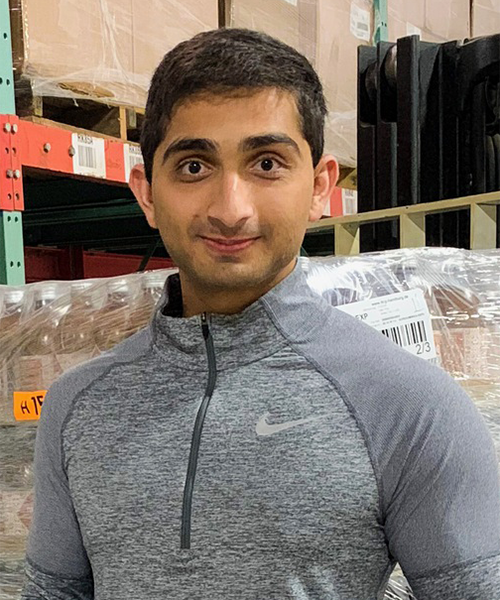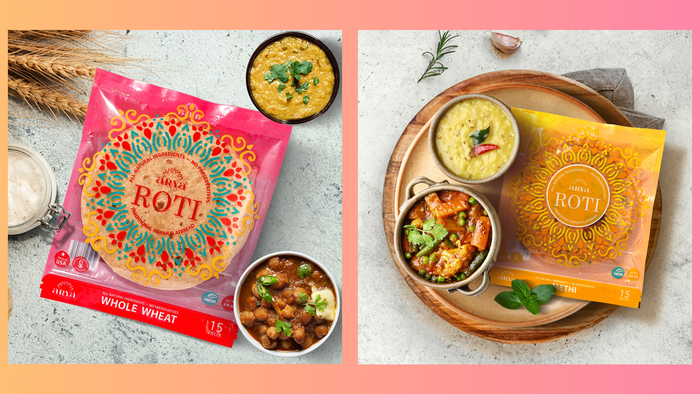How Arya’s spinach roti became an Editor’s Choice NEXTY Award winnerHow Arya’s spinach roti became an Editor’s Choice NEXTY Award winner
Arya International CEO Shridhar Patel shares his insights on starting a small, family-owned business and making food healthier. Read his story.
December 15, 2023

It started as a quaint retail store in New Jersey.
“My mother would sell fresh-packed roti and other family favorites to our local community,” says Shridhar “Shri” Patel CEO of Arya International, which also goes by Arya or Arya Foods.
Growing up, Patel and his sister, Soma Patel, would help their mom, Kajal Patel, with her business, Shri Roti Store in Colonia, New Jersey.
“She was always dedicated to staying true to clean ingredients in food,” Patel says. “At home, we would eat as clean as we could. As we grew older, she inspired us to stay true to our roots.”
That philosophy carried over to Arya International when it was launched in 2017.
Patel had worked as an investment banking analyst at Everingham & Kerr, a merger and acquisition advisory firm that specializes in lower middle-market companies. Many founders were looking to exit their companies once they were valued at $5 million to $200 million.

Shridhar “Shri” Patel, CEO of Arya International
“I was mentored and inspired by their stories,” Patel says. “They found so much enjoyment out of what they were doing, building something incredible and the relationships they had with their employees.” That motivated Patel to start a new culinary venture based on his mother's business.
After leaving his job in investment banking, Patel spent a year working with his mother to understand the local business she still operates. Then he decided to scale.
“When I left investment baking, I had so many founders that were generous and kind with their time and mentorship,” Patel says.
Arya’s product line centers around “healthier tweaks” of two traditional South Indian cuisine staples: roti, a type of ready-to-eat vegan flatbread, and rice batters—a gluten-free blend of rice and lentils including urad dal and other pulses that are ground together and fermented—that can be used for idli, a savory rice cake and dosa, a savory crepe. None of the products include artificial preservatives or taste enhancers.
That caught the attention of many in the natural products world this year.
Arya’s spinach roti won the Editors' Choice for Tasty Discovery NEXTY Award at Natural Products Expo East 2023 and its methi roti, which is infused with turmeric and fenugreek leaves, won the Specialty Food Association’s Sofi New Product Award this year.
Winning these awards has impacted the business “massively,” Patel says.
“Winning the NEXTY and Sofi has given us visibility,” Patel says. “It helps with conversations with other retail partners because now they know this is something that has been vetted by the industry.”
Here’s what Patel had to say about Arya’s history, growth and trajectory.

Arya’s product line centers around “healthier tweaks” of two traditional South Indian cuisine staples. Its roti comes in spinach, methi and whole wheat versions. Credit: Arya
Why did you focus on roti and rice batters?
Shridhar Patel: We strategically focused on staples because roti are used in every household since it goes with different curries, and rice batters are very popular in South Asian cuisines. We knew it would sell, but we wanted to do it by making tweaks to make it a little healthier while keeping the same taste and flavors.
How do you make it healthier?
SP: Instead of using a traditional dosa batter we made a millet batter, quinoa batter and a multi lentil batter. Same thing with roti, which we started working on this past year. We’re now removing canola oil and going to avocado oil. We’re trying to make all of our products as healthy as we can.
What ingredients have you used as swaps?
SP: We started by introducing the millet batter, using mung bean, moringa leaves, fenugreek, leek seeds, curry leaves, quinoa and flaxseed.
Why is having good-for-you products important to you?
SP: We have a history in our family of illness. Not due to food. But my dad had [an oral] cancer. Ever since then, we’ve always been more cognizant of what we put in our foods. We don’t eat anything with chemical preservatives, highly refined gums, starches, partially hydrogenated oils or added sugars. We also want those things to be reflected in our products.
What’s it like running a family business?
SP: We’ve always been a tight-knit family. This certainly feels like a fun project. My sister recently joined the family business and now handling all the national sales. Since we’ve started going to different trade shows and winning the NEXTY and Sofi awards it has opened up so many new avenues for us in retailers.
We self-manufacture everything, so we needed more help.
How many stores is Arya now in?
SP: We are in over 200 stores. A lot of them are done through distributors.
We’re mostly focused on the northeast in ethnic supermarkets. This year, we started specializing in specialty stores.
What do you know now that you wish you would have known when you started out?
SP: So many different things.
When starting a new venture, at first, it’s exhilarating, but then the reality of building a brand becomes apparent very quickly. A significant challenge, or maybe it’s a common misconception is that founders can handle everything on their own. I’ve come to realize that bringing any vision to life requires a collective effort.
What else did you learn?
SP: Many suppliers taught us how to do things we didn’t know, like spec sheets. A lot of retail partners we were trying to get into would tell us, you need a spec sheet, a barcode or you need certain things like a temperature control. Those are the challenges you don’t know when you’re going from just making food at home to a retail product. Even on the packaging, we didn’t know you needed to have grams and ounces.
What’s been a great resource for you as an entrepreneur?
SP: We are a very bootstrap firm, so we are trying to keep our costs as manageable as possible. Vistage has been quite helpful, with many different entrepreneurs coming together. Through that network, I’ve found many people to help us.
About the Author
You May Also Like





